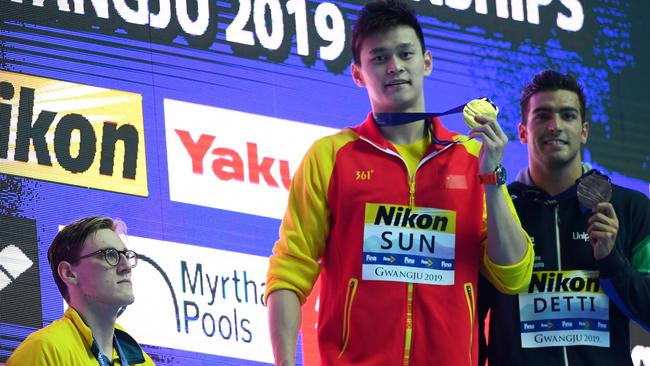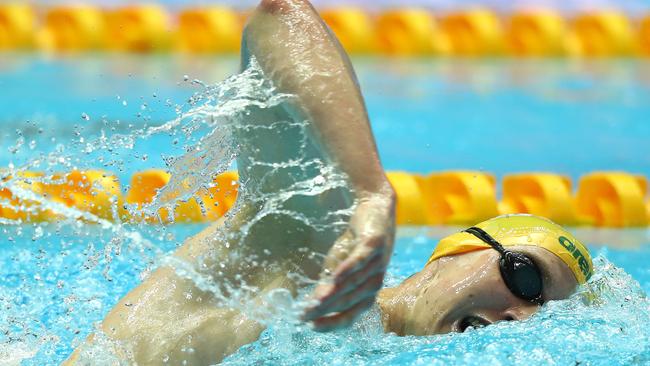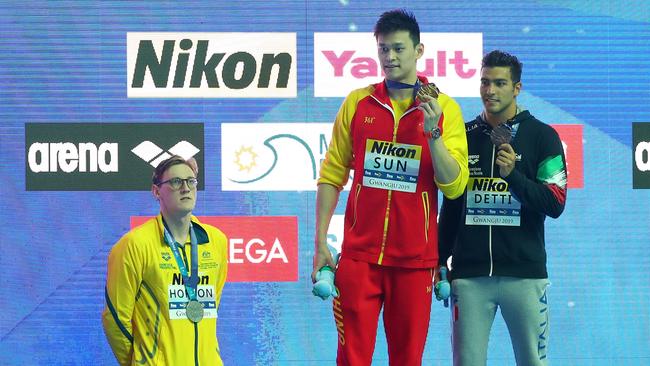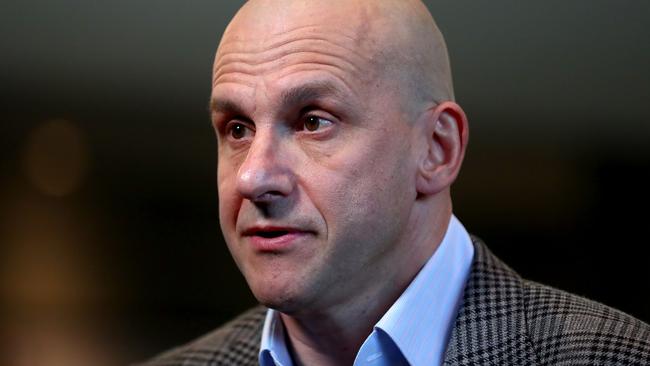Special investigation: Claims of FINA’s $72m threat just the tip of the corruption iceberg
No issue has exposed corruption in swimming more than doping and the Sun Yang case. But track back to 2010 and the depths of FINA’s scandal is shocking.

Swimming
Don't miss out on the headlines from Swimming. Followed categories will be added to My News.
The billionaire businessman behind swimming’s first professional league claims the sport’s world governing body FINA asked him for $US50 million ($A72 million) for approval to run his planned competition.
Ukrainian energy tycoon Konstantin Grigorishin said he refused to make the payment, then rebuked FINA for what he considered to be poor treatment of competitors within the sport.
“You call yourself the FINA family, so how come you treat your children so badly?” Grigorishin said he told FINA. “I think they were a little surprised by this but it’s a fair question.”
PART I: FINA’S ARCHAIC NEPOTISM EXPOSED IN BOMBSHELL REPORT
PART II: SWIMMING SABOTAGE, HOW THORPE’S DRUG TESTS WERE LEAKED
Grigorishin said the payment request came when he travelled to Switzerland in 2018 to present his proposal to FINA.
According to Grigorishin, Sheik Ahmad al-Fahadal-Sabah, the president of the Olympic Council of Asia, was also in attendance, at one of two meetings.
Considered one of the most influential men in world sport, Sheik Ahmad has no formal role in FINA. The meetings did not end in agreement.
Kayo is your ticket to the best sport streaming Live & On-Demand. New to Kayo? Try 14-Days Free Now >

FINA said it would not recognise Grigorishin’s International Swimming League (ISL) then sent a reminder to swimming federations around that world that any competitors involved in unsanctioned events could face bans for up to two years, which they later withdrew, denying it was a threat.
The ISL responded by filing a lawsuit against FINA in the northern district of California for violating U.S. antitrust laws.
ISL was joined in the class action claim by three top international swimmers — Katinka Hosszu, Michael Andrew and Tom Shields.
FINA tried to have the lawsuit dismissed but failed.
The lawsuit is ongoing with a trial expected to go ahead next year.

“FINA intends to hold on to its 110-year monopoly,” Grigorishin said. “But it has never been in a real fight with real people; they have just bullied kids with no experience.
“I told them I was ready for a big litigation process. And that is what happened.”
Grigorishin is just one of the many people who have spoken out at the way FINA runs international swimming.
As part of its special investigation into FINA’s governance, The Daily Telegraph spoke to dozens of swimming insiders, including past and present FINA bureau members, whose identities have been protected at their own request because of fear of retribution.
FINA has since issued a statement, saying it strongly refutes many of the assertions in the published article, which it describes as “wholly inaccurate and one-sided.”
The Daily Telegraph stands by its sources and reporting on FINA’s running of the sport, which the international swimming community has long openly complained about, on a wide variety of issues, not only relating to how FINA spends its money. The scheduling of major races has long been one of the bones of contention.

At the 2008 Beijing Olympics, FINA agreed to switch the finals from their traditional early evening timeslot to early mornings to suit American television broadcasters, without consulting competitors.
They did it again for the 2016 Olympics, commencing the finals from 10pm each night, a time when swimmers are normally fast asleep.
In 2010, FINA ignored the concerns of swimmers who said that staging a 10km open-water Grand Prix in the United Arab Emirates was too dangerous because of the high water temperatures. The race went ahead with tragic results, with the American Fran Crippen dying from drowning and heat exhaustion, while seven others were hospitalised.
No issue has exposed the rift between FINA and participants more than doping. At the 2019 world championships, Mack Horton and Britain Duncan Scott both protested against FINA’s decision to let Sun Yang compete while his latest drugs case was still unresolved.
In 2016, three members of FINA’s doping panel resigned in protest at its handling of the Russian doping crisis. A year later, Australia’s then head coach Jacco Verhaeren quit FINA’s coaching commission in protest.
A year ago, former Australian and British national head coach Bill Sweetenham called for the global swimming community to rise up and overthrow FINA.
“Time has run out for any consultation or compromise,” Sweetenham said.
More Coverage
Originally published as Special investigation: Claims of FINA’s $72m threat just the tip of the corruption iceberg




